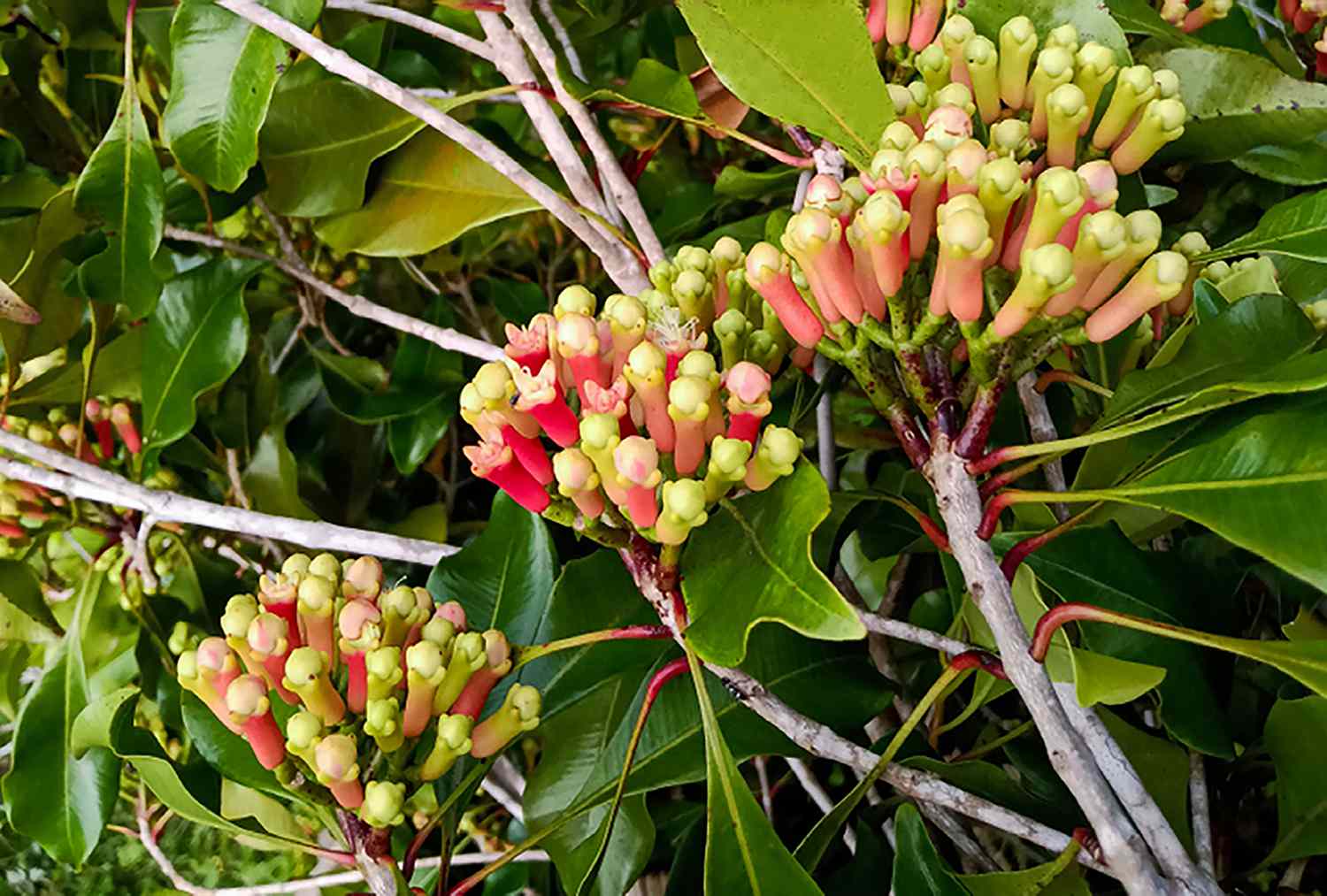
Cloves are more than just a spice to flavor your holiday ham or pumpkin pie. These tiny, aromatic flower buds from the clove tree pack a punch in both the kitchen and the medicine cabinet. Did you know that cloves have been used for centuries in traditional medicine to treat a variety of ailments? From soothing toothaches to aiding digestion, this spice has a rich history. But that's not all—cloves also boast impressive nutritional benefits, including being a good source of vitamins and minerals. Curious about how cloves can benefit you? Let's dive into 32 fascinating facts about this versatile spice that might just make you appreciate it even more.
Cloves: A Spice with a Rich History
Cloves, those tiny, aromatic flower buds, have been cherished for centuries. Originating from the Maluku Islands in Indonesia, this spice has traveled across the globe, enriching cuisines and cultures. Let's dive into some fascinating facts about cloves.
- Cloves are the dried flower buds of the Syzygium aromaticum tree.
- The name "clove" comes from the Latin word "clavus," meaning nail, due to their nail-like shape.
- Cloves were once worth their weight in gold during the spice trade era.
- Ancient Chinese texts from 200 BCE mention cloves being used to freshen breath before speaking to the emperor.
- In the Middle Ages, cloves were used to preserve food and mask the taste of spoiled meat.
Health Benefits of Cloves
Cloves aren't just a flavorful addition to dishes; they also offer numerous health benefits. Packed with essential nutrients and compounds, cloves can boost overall well-being.
- Cloves contain eugenol, a compound with potent anti-inflammatory properties.
- They are rich in antioxidants, which help combat oxidative stress and reduce the risk of chronic diseases.
- Cloves have antimicrobial properties, making them effective against certain bacteria and fungi.
- They can help improve digestion by stimulating the secretion of digestive enzymes.
- Clove oil is often used to relieve toothache due to its analgesic properties.
Culinary Uses of Cloves
Cloves add a warm, sweet, and aromatic flavor to various dishes. Their versatility makes them a staple in many kitchens worldwide.
- Cloves are a key ingredient in the spice blend garam masala, commonly used in Indian cuisine.
- They are used in baking, especially in holiday treats like gingerbread and pumpkin pie.
- Cloves are essential in making mulled wine and spiced cider.
- In Indonesian cuisine, cloves are used to flavor traditional dishes like rendang.
- Cloves are often added to pickling spice mixes for their unique flavor.
Cloves in Traditional Medicine
For centuries, cloves have been used in traditional medicine to treat various ailments. Their natural compounds offer therapeutic benefits.
- In Ayurvedic medicine, cloves are used to treat respiratory and digestive issues.
- Traditional Chinese medicine uses cloves to warm the body and improve circulation.
- Clove oil is used in aromatherapy to reduce stress and promote relaxation.
- Cloves are believed to have aphrodisiac properties in some cultures.
- They are used in herbal teas to soothe sore throats and coughs.
Fun Facts About Cloves
Cloves have some quirky and lesser-known facts that make them even more intriguing. These tidbits highlight the spice's unique characteristics.
- Cloves are harvested by hand, a labor-intensive process that requires skill and precision.
- The clove tree can grow up to 40 feet tall and live for over 100 years.
- Zanzibar, an island in Tanzania, is one of the world's largest producers of cloves.
- Cloves were once used as a form of currency in some parts of the world.
- The Dutch East India Company held a monopoly on the clove trade in the 17th century.
Cloves in Modern Times
Today, cloves continue to be a beloved spice, used in various industries beyond cooking. Their versatility and benefits keep them relevant in modern times.
- Clove oil is used in the cosmetic industry for its fragrance and therapeutic properties.
- It is an ingredient in some natural insect repellents.
- Cloves are used in the production of certain types of cigarettes, known as kreteks, in Indonesia.
- The spice is used in dental care products like toothpaste and mouthwash for its antiseptic properties.
- Clove extracts are being studied for their potential anti-cancer properties.
Environmental Impact of Clove Production
Sustainable farming practices are crucial for maintaining the balance of ecosystems where cloves are grown. Understanding the environmental impact helps promote responsible consumption.
- Clove trees thrive in tropical climates with rich, well-drained soil.
- Sustainable clove farming practices help preserve biodiversity and support local communities.
Final Thoughts on Clovers
Clovers are more than just lucky charms. These little plants pack a punch with their nutritional value, medicinal properties, and ecological benefits. From being a symbol of good fortune to playing a crucial role in agriculture, clovers have a lot to offer. They improve soil health by fixing nitrogen, making them a farmer's friend. Plus, their antioxidant-rich leaves can be a healthy addition to your diet. Whether you're looking to boost your garden's fertility or add some greens to your plate, clovers are a versatile choice. So next time you spot a clover, remember it's not just a weed—it's a powerhouse of benefits. Keep an eye out for those rare four-leaf clovers; they might just bring you a bit of luck along with all their other perks.
Was this page helpful?
Our commitment to delivering trustworthy and engaging content is at the heart of what we do. Each fact on our site is contributed by real users like you, bringing a wealth of diverse insights and information. To ensure the highest standards of accuracy and reliability, our dedicated editors meticulously review each submission. This process guarantees that the facts we share are not only fascinating but also credible. Trust in our commitment to quality and authenticity as you explore and learn with us.
